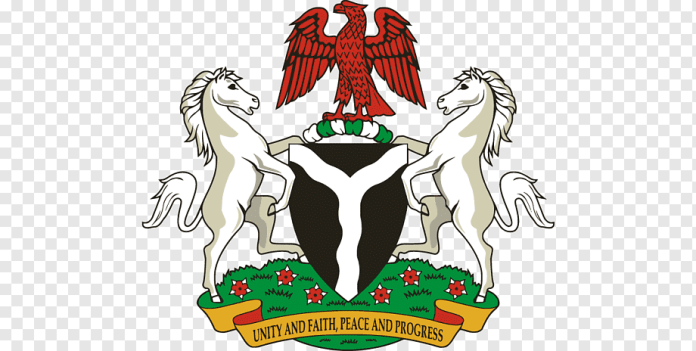- Awards N4.2bn Grant For Innovation, Entrepreneurship Hubs
THE Federal Government yesterday inaugurated the revised National Employment Policy (NEP) to foster a productive and employment-intensive economy in Nigeria.
The policy, developed in collaboration with the International Labour Organisation (ILO), Swiss Agency for Development and Cooperation (SDC), and German Development Cooperation (GIZ), aims to promote full employment as a central national objective.
The Minister of Labour and Employment, Mr. Muhammad Dingyadi, unveiled the policy in Abuja, describing it as a renewed vision for inclusive growth, equity, productivity, and sustainability in the labour market.
He said the review was necessary due to persistent challenges, including high youth unemployment, underemployment, gender disparities, informality and regional inequalities.
“Global trends such as automation, climate change, and digitalisation have further impacted the world of work.
“The NEP 2025 is not just a document of intent but a strategic tool aligned with Nigeria’s National Development Plan (2021–2025), the African Union Agenda 2063, the ILO’s Future of Work Initiative,” Dingyadi said.
He added that it also aligned with President Bola Tinubu’s Renewed Hope Agenda, reflecting the government’s commitment to inclusive growth and job creation.
Dingyadi said that the policy would promote decent work, formalise the informal sector, boost employability, and tap into emerging job-rich sectors like the digital, green, blue, and orange economies.
The revised NEP, he noted, included measurable indicators and practical guidelines for implementation, with a focus on youth, women, and persons with disabilities.
Dingyadi also highlighted the role of the National Employment Council in ensuring coordination across government agencies to prevent duplication of efforts.
He called on state governments to domesticate the policy and align employment strategies with national goals, describing job creation as a shared responsibility.
He urged the private sector to invest in employment-rich sectors and support skill development and workplace innovation.
Dingyadi also appealed to development partners for continued technical and financial support.
Speaking on behalf of the Nigeria Labour Congress (NLC), Mr Eustace James, NLC’s Focal Person on Migration, who represented the President, Joe Ajaero, said employment is essential to human dignity and social development.
“Nothing is more important for working people than being decently engaged. Employment guarantees wages and economic inclusion,” he said.
Ajaero said the NLC fully participated in the review and pledged to support the policy’s effective implementation.
Mr Austin Erameh, ILO representative, described the policy as a timely intervention to address unemployment, underemployment, and skill mismatches, noting that it was developed through inclusive consultations with workers, employers, and stakeholders.
“It provides a progressive framework to improve wealth creation, ensure decent wages, and enhance the well-being of Nigerians,” he said.
Also speaking, the Director-General of the Nigeria Employers’ Consultative Association (NECA), MrAdewale-Smatt Oyerinde, described the NEP as a significant step toward aligning Nigeria’s labour market framework with global best practices and national development goals.
He was represented by NECA’s Director of Labour and Social Affairs, Mrs Adenike Adebayo-Ajala.
Ms. Rachel Schipper, representing GIZ, said the policy’s development took over two years of consultation and technical review, culminating in its approval by the Federal Executive Council on May 19, 2025.
In another development the Federal Government has approved N4.2 billion grant for the funding of 158 research projects under the Tertiary Education Trust Fund (TETFund) National Research Fund (NRF) 2024 Grant Cycle.
This is disclosed in a statement made available to newsmen in Abuja on Tuesday by the Director, Public Affairs, TETFund, Abdulmumin Oniyangi.
Oniyangi said that the approval followed the report of the TETFund National Research Fund Screening and Monitoring Committee (NRFS&MC), which recommended the funding after a rigorous screening exercise.
He said that the exercise commenced with the receipt of 6,944 concept notes from various researchers.
“A breakdown of the approval indicates that the sum of N2.34 billion was approved for the Science, Engineering, Technology and Innovation (SETI) thematic group.
“N1.02 billion for Humanities and Social Science (HSS), while Cross Cutting (CC) received N870.70 million.
“Benefiting institutions with the highest number of awards include the Federal University of Technology, Minna with a total of 15 awards amounting to N400.03 million,” he said. He said that Ahmadu Bello University has 13 awards totaling N359.80 million and Federal University of Technology, Akure has 12 awards at N341.60 million.
Others are Federal University of Technology, Owerri with 11 awards at N256.35 million, Abubakar Tafawa Balewa University, Bauchi with 10 awards at N273.40 million and University of Ilorin with eight awards totaling N220.53 million.
Oniyangi added that the approved research works include Development of Sustainable Eco-Friendly Walling System for Low-Cost Housing in the Rural Communities of Nigeria.
Others, he said, are Development of hybrid cubic fertilizer using plant-based binders for efficient nutrient release and utilization, Development of an Intelligent Aerial Robotics System for Efficient Weed and Disease Management in Maize-Cowpea Farmland in Nigeria.
The research works also include the Development of an Artificial Intelligence-Enable Internet of Medical Things for Military Physiological Monitoring and Activity Recognition System at War Zone and Development of a Novel Intelligent Electrical Energy Management Metering among others.
Similarly, the federal government had approved the award of contracts for the establishment of 18 Innovation and Entrepreneurship Hubs in TETFund beneficiary institutions across the six geo-political zones of the country in the 2024 intervention.
Oniyangi said that the hubs would provide Core Labs/Workstation to cover Electronic Lab, 3D Printing Lab, Laser Technology Lab, Product Design Lab, Robotics and Coding, Artificial Intelligence, among others.
The project, he said, was intended to facilitate and accelerate the uptake of promising research output, providing solution-driven and multidisciplinary hubs tailored towards the needs of beneficiary institutions.
The NRF grant was introduced by TETFund to encourage cutting-edge research which explore research areas relevant to societal needs of Nigeria such as power and energy, health, security, agriculture, employment and wealth creation etc..


